Skin Cancer Screenings
Dermatologists are trained to recognize and differentiate between benign moles, freckles, and other skin lesions from potentially harmful or cancerous ones. Identifying suspicious lesions early can prompt further evaluation or biopsy if necessary.
Examples of Skin Cancer Screenings
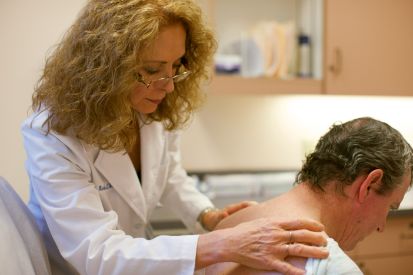
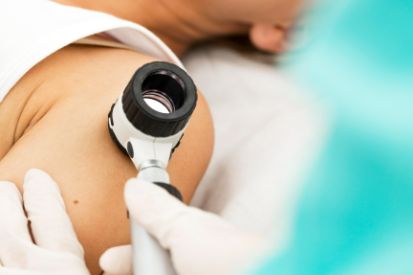
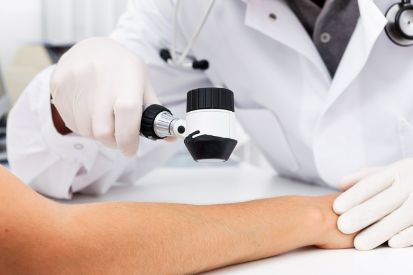
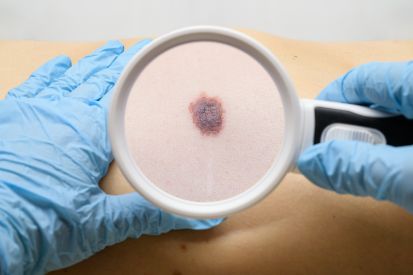
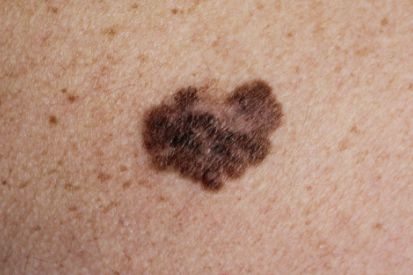
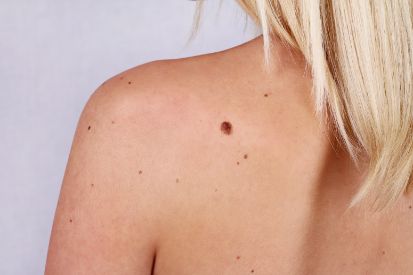
Why Patients Need a Total Body Skin Exam
TBSEs also provide an opportunity for healthcare providers to educate patients about skin cancer risk factors, sun protection measures, and self-examination techniques. Educating patients empowers them to take proactive steps in maintaining their skin health.
Benefits of a TBSE
Regular skin cancer screenings are an important part of dermal healthcare, promoting early detection and timely intervention.
How a Board-certified Dermatologist Can Help?
In addition to offering care from the most qualified skin care professionals, our holistic approach to the treatment of the skin includes hair and nails, and you can count on us to take the time to examine you and provide a holistic approach to the health of your skin and your lifetime skin wellness journey.
FAQs: Total Body Skin Exam (TBSE)
The frequency of TBSEs varies based on individual risk factors, personal history, and family history of skin cancer. Generally, it's recommended to have a baseline examination and discuss follow-up intervals with your dermatologist.
No, a TBSE is a non-invasive and painless examination. It involves a visual inspection without any invasive procedures like biopsies unless a suspicious lesion is identified and requires further evaluation.
After the examination, your dermatologist may discuss their findings with you. If suspicious lesions are identified, they might recommend further evaluation through a biopsy or additional tests.
Yes, regular self-examinations of your skin are encouraged. Your dermatologist can teach you how to perform self-checks between professional examinations. Look for changes in moles, new growths, or any irregularities in your skin.
Anyone with a history of skin cancer, multiple moles, or a family history of skin cancer should consider regular TBSEs. Individuals with fair skin, extensive sun exposure history, or a weakened immune system may also benefit.
Sun protection is essential. Use sunscreen, wear protective clothing, hats, and sunglasses, and seek shade during peak sun hours to minimize sun damage and reduce the risk of skin cancer.
Learn about Total Body Skin Exams
What to Expect During Your Total Body Skin Exams
You will be asked to stand or sit, and your dermatologist will systematically examine the entire body, including the scalp, face, neck, torso, arms, hands, legs, feet, and even between the toes and the soles of the feet.
Your provider will closely examine moles, freckles, birthmarks, and any other skin abnormalities. They will assess the size, shape, color, and borders of each lesion. If any suspicious lesions are identified, they will discuss their findings with you and may recommend further diagnostic tests or a biopsy for a more accurate diagnosis.
Depending on the findings, your dermatologist may recommend scheduling for follow-up screenings or additional appointments for monitoring or treatment.
Remember, a TBSE is a proactive measure for early detection of skin cancer, and patients are encouraged to communicate openly with their healthcare provider about any concerns or questions they may have during the examination.
How to Prepare for a TBSE
Before the appointment, take note of specific moles or skin concerns, and consider going makeup-free if you have concerns about your face. Arrange your hair for scalp examination and remove nail polish if necessary. Share your medical history, including any family history of skin cancer, and bring a list of current medications.
Feel free to ask questions to ensure a clear understanding of the TBSE process. Remember, this routine procedure is designed for early detection of skin cancer, and your dermatologist is there to address your concerns and support your skin health.
Is Recovery Needed for a TBSE?
After a TBSE, individuals may choose to keep an eye on any areas of concern identified by the dermatologist and follow any recommendations for self-monitoring.
It's essential to maintain good skin health practices, such as regular use of sunscreen, protection from excessive sun exposure, and self-examination of the skin for any changes between medical appointments.
Featured Products

Revision Intellishade Clear Broad-Spectrum SPF 50
Correct, protect, brighten, and hydrate skin with this 4-in-1 daily age-defying untinted moisturizer with Broad-Spectrum SPF 50. Intellishade® Clear provides immediate and long-term hydration to the skin, reduces the appearance of fine lines and wrinkles, visibly brightens and evens skin tone, protects the skin from broad-spectrum UVA/UVB radiation, and reduces free radical damage from environmental stressors for healthy, beautiful skin. 1.7 oz / 48 g

SkinCeuticals Sheer Physical UV Defense SPF 50
Sheer Physical UV Defense SPF 50 is a 100% mineral sunscreen that leaves a mattifying, transparent finish. This sunscreen offers broad spectrum protection for all skin types, including sensitive, while boosting skin's natural defenses to environmental stress using artemia salina, a plankton extract. 1.7 fl oz / 50 mL
